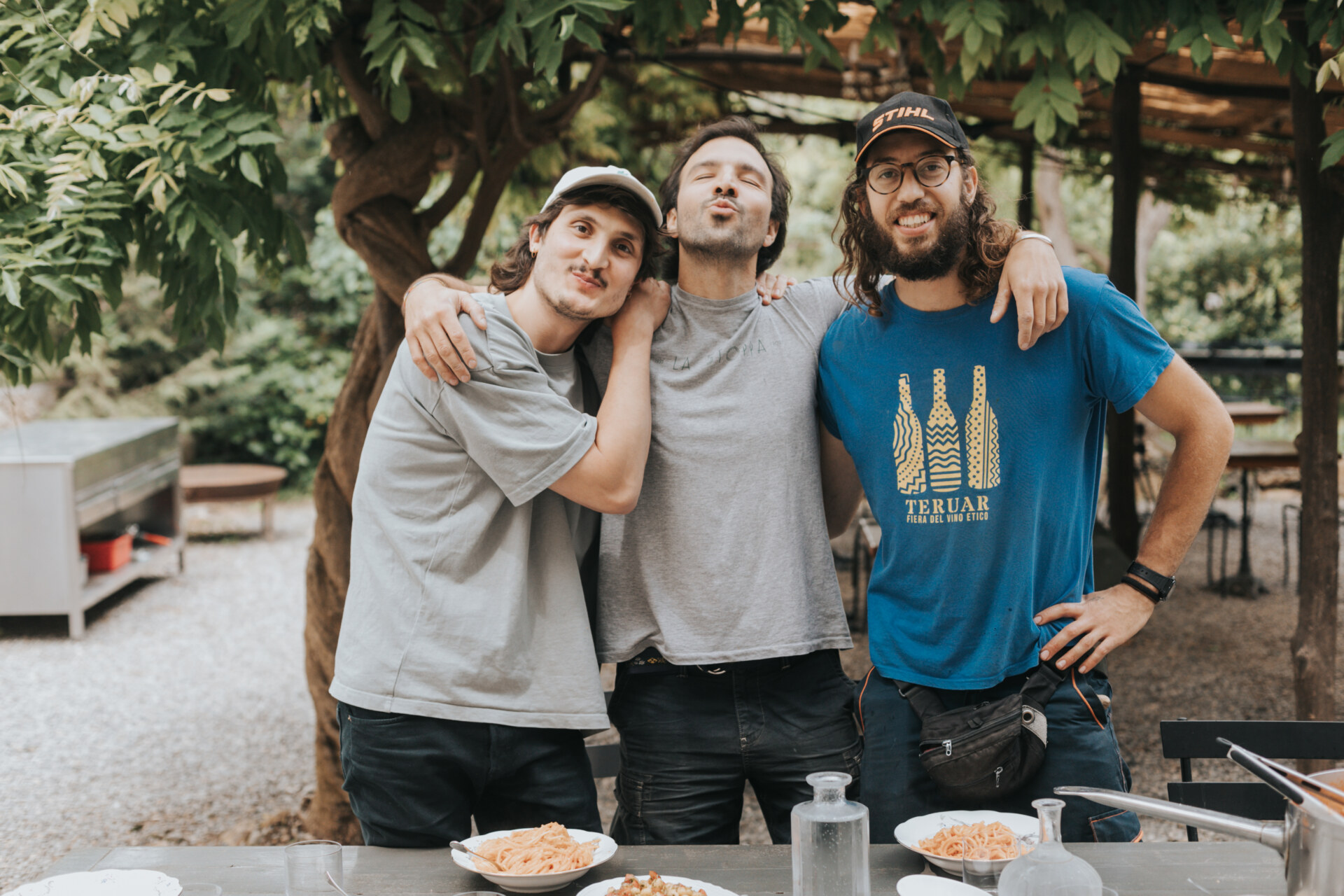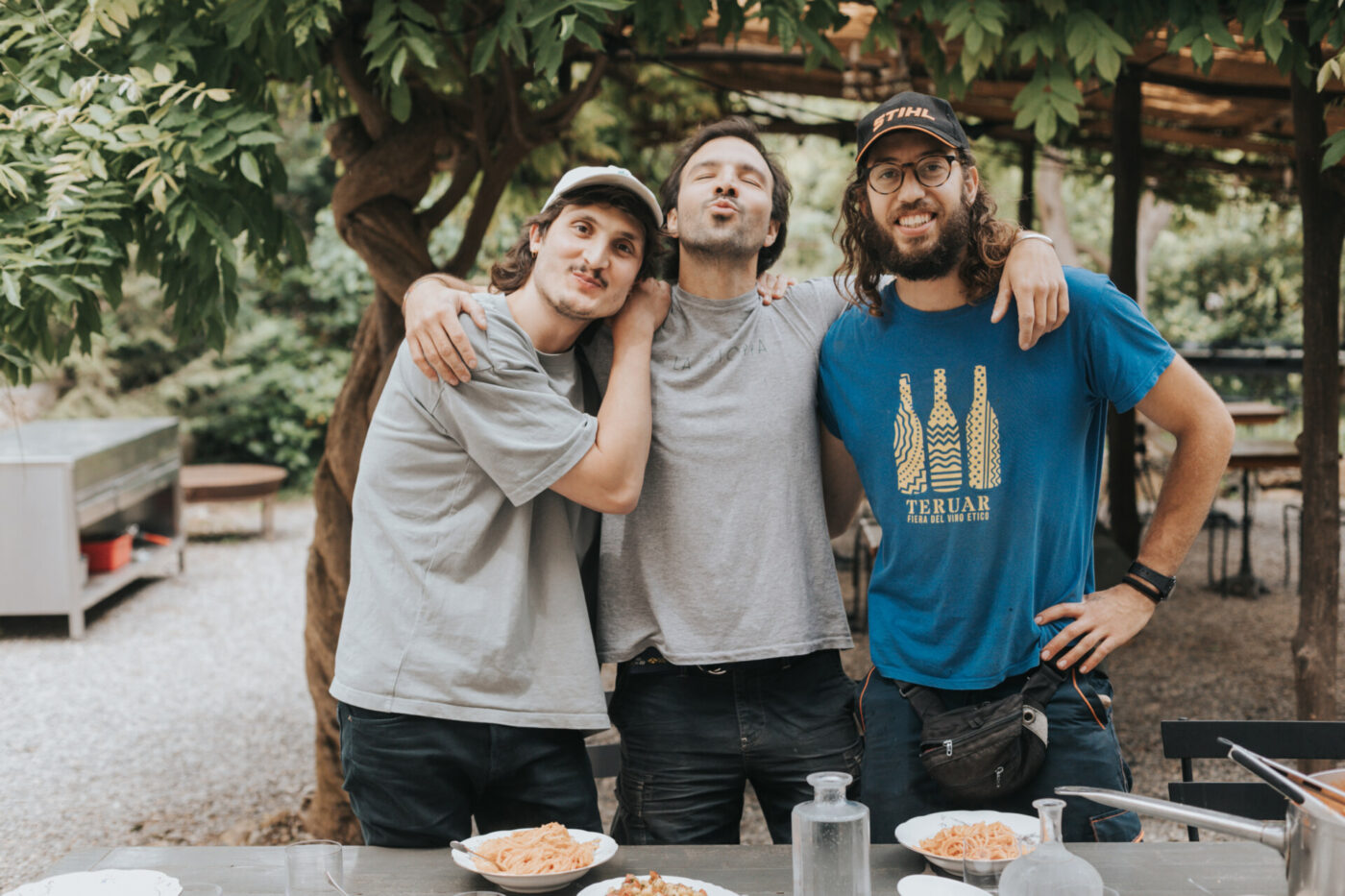Tell us a bit more about your background and your current work?
We all have different academic backgrounds: Gianluca in economics, Valentin in social and political sciences, and Pietro in gastronomic sciences. We met at the University of Gastronomic Sciences in Bra, Piedmont where Gianluca and Valentin were getting a Masters in Food Ecology. Our friendship blossomed under the light of food and, after a few years of work between restaurants and wineries, we started a fundraising project with the intention of purchasing a large rural property in Liguria. Together with two more visionaries, we developed a business model that allowed us to put together a group of impact investors that deeply believed in our story and in our drive to regenerate what was once a thriving polyfunctional farm and corner of paradise.
Valleponci is an agriturismo, a farm, a restaurant, a guesthouse, a winery, and a research project all at the same time. Here, we coordinate an international group of young farmers, chefs, and enthusiasts that, together with us, understand and use food as a medium to address social and spiritual change in our societies.
Why did you choose to stay in Italy?
I, Gianluca, decided to stay in Italy, specifically in Liguria, in the first place because this is where I am from. Us Ligurians are strongly connected to this harsh, vertical landscape. Here the morphology repulses you and strongly calls you back at the same time. Here is somehow where the Mediterranean begins. I deeply consider myself part of this broader, multicultural entity.
Also, and more generally, [I decided to stay] because I recognize this Italian latitude as an ideal compromise between climate, variety of cultural and culinary influences, lifestyle(s), and more. Being right at the center of the Mediterranean sea–this vibrant process of colors and happenings–is a quite cool feeling.
What do you see for the future of food in Italy?
Concerning the future of food in Italy (and elsewhere), we hope to be part of a necessary deep and paradigmatic shift in the way people perceive their relationship with food–and with life and landscapes in general. Through our food choices and behaviors, we strongly influence the quality and fabric of the world surrounding us. We believe that a conscious, small-scale, and celebrative approach to the universal importance that food has can become an important step for change.
What are the greatest obstacles and satisfactions that you face working in this country?
In terms of obstacles, again I like to stress the heaviness and inefficiency of the Italian bureaucracy. The infinite hours spent queuing, phoning, waiting, writing; sometimes we have the impression that the system itself is playing against you–more than in your favor. Probably due to the recent and fragmented history of this Italian state of ours, being an international project gives us many perspectives on the procedures and ways of making business down here and elsewhere.

